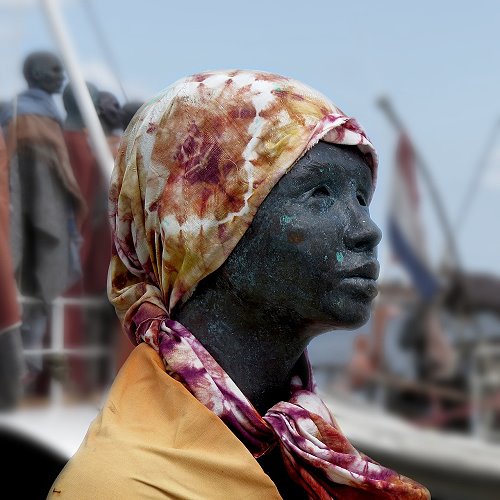 A broad coalition of local organizations in Senegal is calling on the new government to take decisive action to improve conditions for its people. A silent march demanded a national effort to help young people remain in the country and build a better future. Mundus maris expresses its solidarity with the affected families in Senegal and beyond. It supports the coalition’s call for deeper government, professional, and civil society engagement to stop the exodus and invest in human capital, institutions, and decent working conditions.
A broad coalition of local organizations in Senegal is calling on the new government to take decisive action to improve conditions for its people. A silent march demanded a national effort to help young people remain in the country and build a better future. Mundus maris expresses its solidarity with the affected families in Senegal and beyond. It supports the coalition’s call for deeper government, professional, and civil society engagement to stop the exodus and invest in human capital, institutions, and decent working conditions.
A key driver of migration is the collapse of local fisheries, where overfishing mostly by industrial vessels, but also by increased numbers of artisanal boats has decimated resources. Young people no longer find stable livelihoods in the fishing sector, and misinformation about opportunities abroad exacerbates the issue. The crisis in artisanal fisheries hits women particularly hard, as many rely on selling fish to support their families. Solutions must include rebuilding fish stocks and giving local fishers priority access to resources, combined with technical education to help the younger generation adapt and thrive.
«Barcelona ou la mort!» ‘Barcelona or death’ was already the mindset of many youths departing in organised emigration routes from Thiaroye-sur-mer in traditional pirogues, open fishing boats, heading to the Canary Islands, almost 1,500 km away in 2020. These have meanwhile swelled from a trickle to a new tsunami of mostly young people not only from Senegal, but also other Sahel countries with unstable political and security situations. They now depart from all major Senegalese fish landing places, Kayar, Mbour, Joal.
Experienced fishers used to captain the boats and often succeeded to bring their human cargo safely across on the hazardous marine journey of about 1,500 km. This is not always the case any more. The determination to leave no matter what has been fired up also by WhatsApp messages of emigrants who have managed to set foot onto European soil and receive basic housing, food and other support. They feed illusions of an easy life elsewhere.
 What is triggering the current surge in the exodus from Senegal? The dire situation of overfished resources additionally reduced to fish meal for feeding luxury carnivorous fish in industrial aquaculture in Norway, China and elsewhere rather than feeding people with modest income is a major contributing factor. Much less fish landed for sale to local women fish processors and traders means collapse of income earned to feed families and keep children in school. The pauperisation hits women as bread winners for the family particularly hard. In Senegal all governments so far have denied them recognition of their professional status, thus rendering difficult or even denying access to social services, insurance and technical education.
What is triggering the current surge in the exodus from Senegal? The dire situation of overfished resources additionally reduced to fish meal for feeding luxury carnivorous fish in industrial aquaculture in Norway, China and elsewhere rather than feeding people with modest income is a major contributing factor. Much less fish landed for sale to local women fish processors and traders means collapse of income earned to feed families and keep children in school. The pauperisation hits women as bread winners for the family particularly hard. In Senegal all governments so far have denied them recognition of their professional status, thus rendering difficult or even denying access to social services, insurance and technical education.
It’s a downward spiral of massive overcapacity of industrial fishing vessels and local artisanal fishers that has brought down resources in a race to the bottom where more and more juvenile fish are caught for fish meal undermining tomorrow’s food production. It means that the artisanal fishery can not absorb young labourers not finding work in agriculture any more.
More broadly perceived lack of social and economic perspectives in the country is a key driver. This is compounded by lack of opportunities and security in neighbouring Sahel countries, including Mali, Burkina Faso, Niger, now governed by military juntas after deposing elected governments.
The recent surge in irregular departures from different Senegalese beaches means up to 150 humans will squeeze into a pirogue often without an experienced captain and sufficient supplies on board. Unlike calmer conditions during the northern winter months the sea can be quite rough. More boats capsize and the death toll is rising. Many families are deploring the loss of young family members. Some 10 days ago some 35 bodies were recovered from a capsized pirogue off Mbour with likely more than another 100 persons drowned, but not found. Today, most people in a pirogue close to El Hierro Island in the Canary Islands drowned before they could be rescued.
Mundus maris expresses its solidarity with the affected families in Senegal and other countries. It supports the demands of the broad social coalition to prioritize sustainable solutions in fisheries and beyond. A national dialogue that engages with youths, women, and the most vulnerable, supported by international partners, is key to reversing the current destructive trend. It’s about managing the fisheries for recovery and more local benefits, investing in people, better education to create more opportunities outside fishing, functioning institutions and a dignified future for all.
29/09/2024








